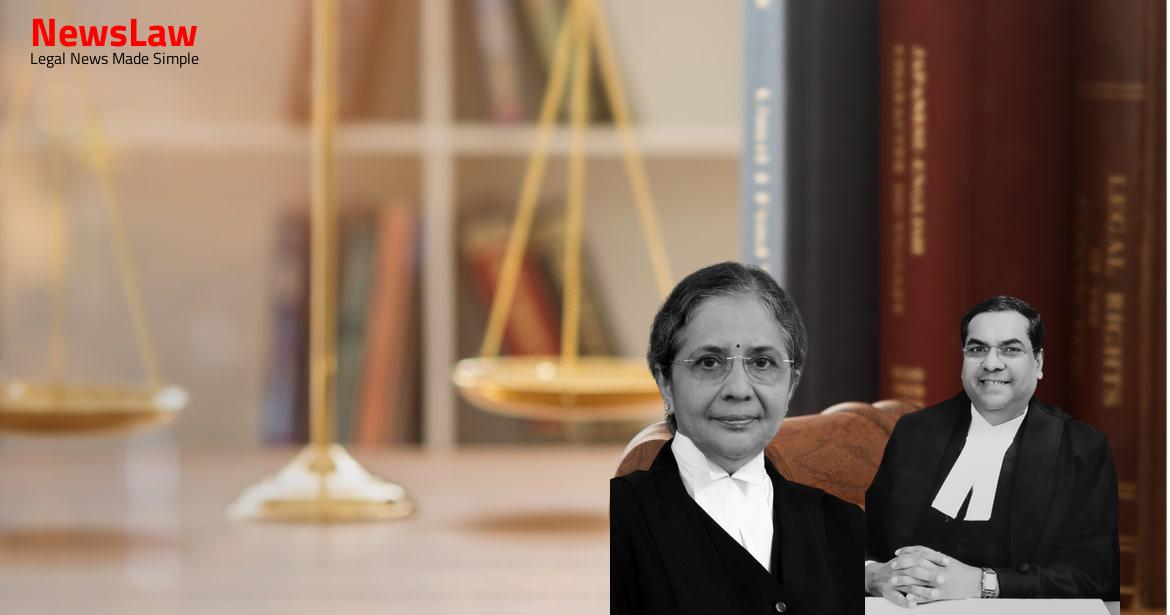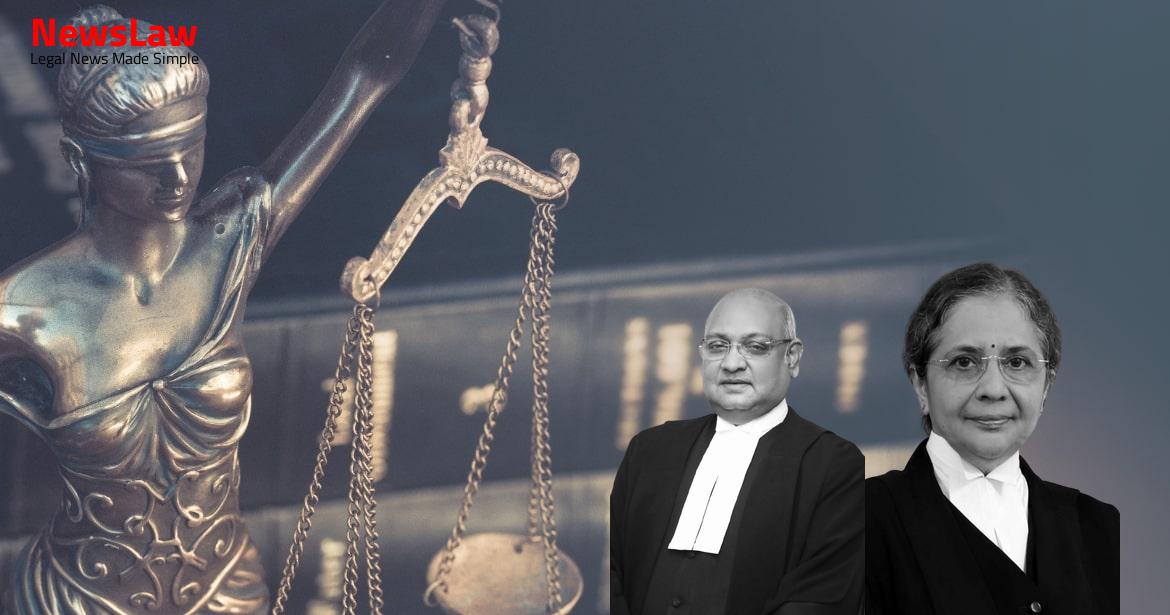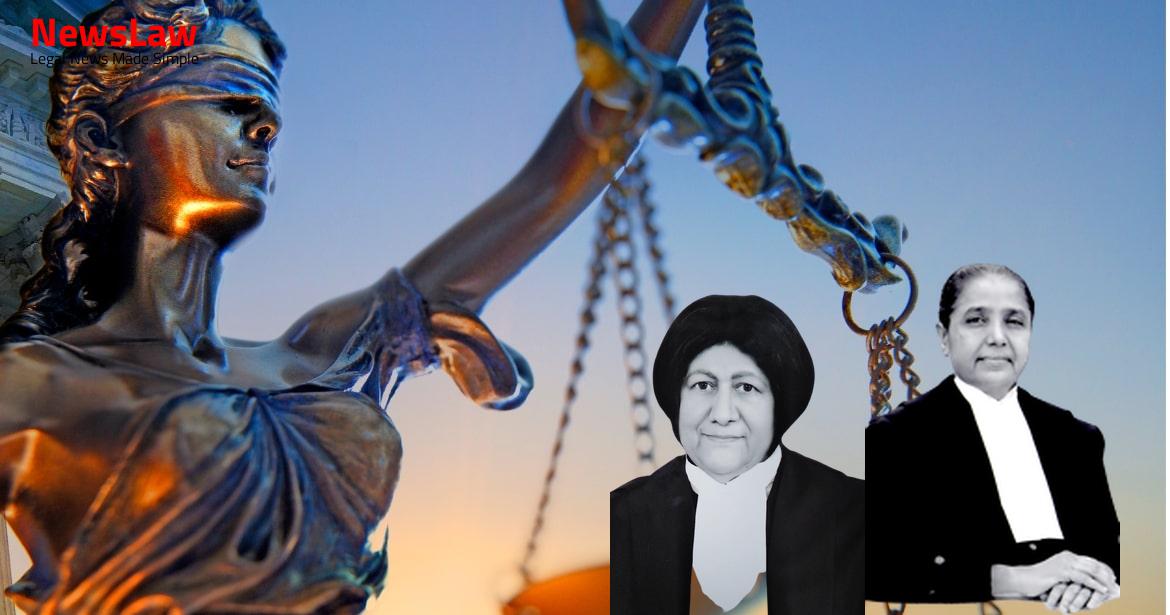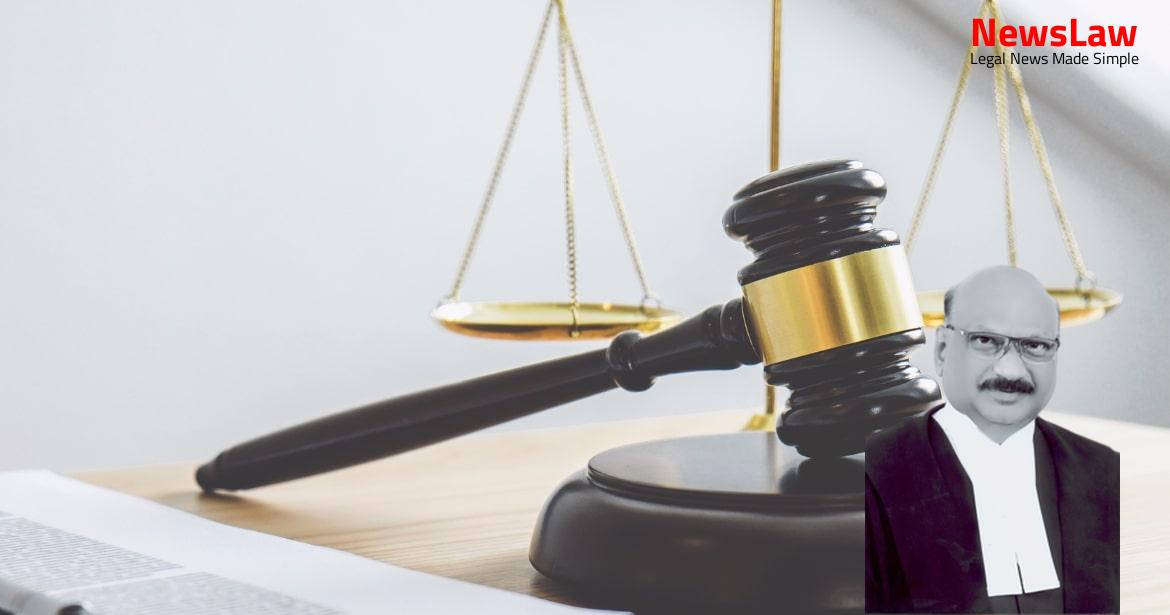Explore the complex legal principles surrounding provocation and self-control in homicide cases as analyzed by the court. The evaluation of the accused’s reactions to provocation, the dynamics of self-control, and the application of legal exceptions form the basis of intricate legal analysis in criminal law. Follow along to gain insights into how the courts interpret and apply these critical concepts in determining the outcomes of such cases.
Facts
- Public witnesses turned hostile, but ample evidence implicates the appellant.
- Appellant confessed the crime at the police station on September 26, 2011.
- Confession is inadmissible as proof under Section 25 of the Indian Evidence Act, 1872.
- Aghnoo Nagesia v. State of Bihar established confessional statement scope.
- Severability test to admit evidence was rejected; each sentence not treated separately.
- Dashrath Nirmalkar suffered multiple fractures on the skull in the homicidal death.
- Appellant Dauvaram Nirmalkar convicted under Section 302 IPC for murdering Dashrath Nirmalkar.
- Sentenced to life imprisonment, fine, and default additional imprisonment.
- Dr. Nohar Prasad Jangde testified on the cause of death due to head injuries.
Also Read: Analysis of Bail Conditions in Criminal Appeal No. INSC 48/2024
Analysis
- The offender is presumed to possess the general power of self-control of an ordinary or reasonable man in society.
- The gravity of provocation is assessed based on the history of abuse, not just the final act.
- The final act triggering the accused’s reaction should demonstrate temporary loss of self-control.
- The involvement of the appellant as the perpetrator was confirmed by both the High Court and the trial court.
- The sustained provocation test requires the accused’s retaliation to be immediately preceded by provocative conduct.
- The burden of proof lies with the prosecution to establish all elements of the offence charged.
- The sustained provocation principle does not eliminate the requirement of an immediate or final provocative act.
- The defense of a third person killing the victim was rightly rejected as falling under Exception 1 to Section 300 of the IPC.
- The appellant’s self-inflicted burn injuries and suicide attempt were acknowledged.
- The statements of various witnesses played a crucial role in establishing the events leading to the incident.
- The chain of facts and circumstances pointed unmistakably to the appellant as the sole perpetrator.
- Previous provocative acts contribute to assessing the gravity of the final provocation leading to loss of self-control.
- Exception 1 of Section 300 applies when the offender reacts to grave and sudden provocation by causing the death of the provocateur.
- Exception 4 is invoked when an offense is committed without premeditation in the heat of passion during a sudden quarrel.
- The courts must apply the reasonable person standard to evaluate loss of self-control in the circumstances.
- The relationship between the appellant and the deceased, along with the events on the day of the incident, were considered in determining the chain of events.
- The seized pick-axe and blood-stained shirt of the appellant supported the connection between him and the fatal injuries to the deceased.
- Law attaches importance to intervening period for passion to cool and relationship of mode of resentment to provocation given.
- Test for Exception 1 to Section 300 of IPC should be applied from the viewpoint of a person of reasonable prudence.
- Proximity of time to provocation is crucial in determining loss of self-control.
- Provocation may be an act or series of acts by the deceased resulting in the injury.
- Consideration of sufficient interval for passion to cool is essential.
- Test of ‘grave and sudden’ provocation depends on cultural, social, and emotional background of the accused’s society.
- Acts causing sudden provocation sufficient for reactive loss of self-control can apply to sustained provocations over time with a final trigger.
- Importance of deceased’s final act in relation to previous dealings and its effect on the accused is crucial in understanding retaliation.
- Exception 1 to Section 300 recognizes continuous torment leading to a point of eruption and loss of self-control.
- First part of the Exception emphasizes reflection and cooling down period for the accused before retaliation.
- Conditions for invoking Exception 1 include grave and sudden provocation leading to actual and reasonable loss of self-control.
- The retaliation should be proportionate to the provocation given.
- The subsequent act causing grave and sudden provocation for committing the offence needs to be considered.
- The fatal blow must be directly linked to the influence of passion from the provocation.
- Premeditation and calculation should not have influenced the fatal blow, which should have been influenced by the immediate passion from the provocation.
- The provocation exception was applied to convert the appellant’s conviction from Section 302 to Part I of Section 304 of the IPC.
- The acts of provocation that led to the appellant causing the death of his brother were sudden and grave, resulting in a loss of self-control.
- The appellant experienced temporary loss of self-control, as evidenced by his attempt to kill himself by holding live electrical wires.
- The appellant has already served over 10 years in custody since September 27, 2011.
Also Read: Conviction Upheld for Murder and Concealment of Body
Decision
- The sentence of imprisonment has been modified to the period already undergone.
- The appellant is directed to pay a fine of Rs. 1,000/- and in default, will undergo six months of simple imprisonment.
- Upon payment of the fine or default imprisonment, the appellant is to be released immediately unless detained for another case.
- The appeal is partly allowed, with the modification of the conviction and sentence as stated above.
Also Read: 1991 Decree Invalid: No Determination of Rights in Property Dispute
Case Title: DAUVARAM NIRMALKAR Vs. THE STATE OF CHHATTISGARH (2022 INSC 786)
Case Number: Crl.A. No.-001124-001124 / 2022



